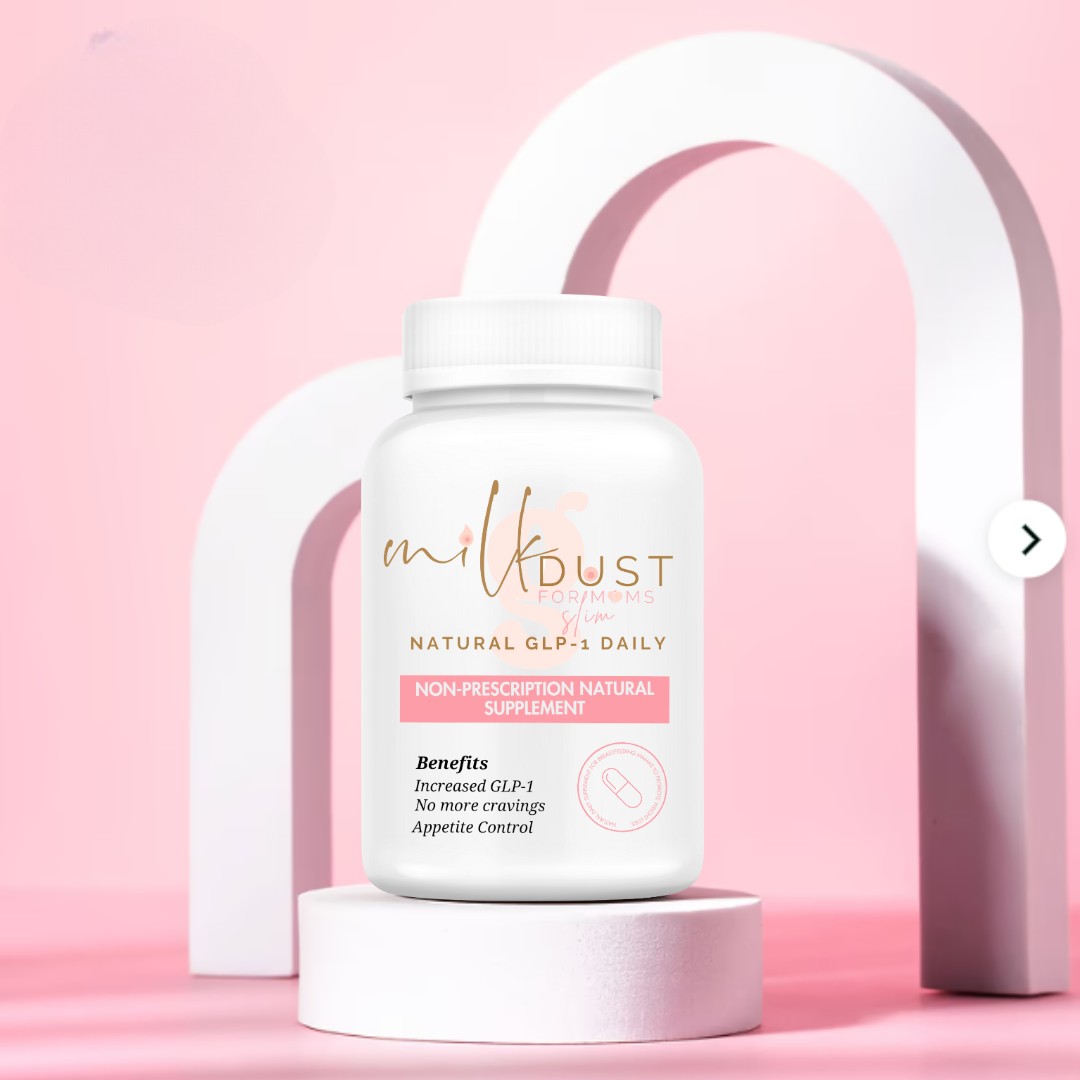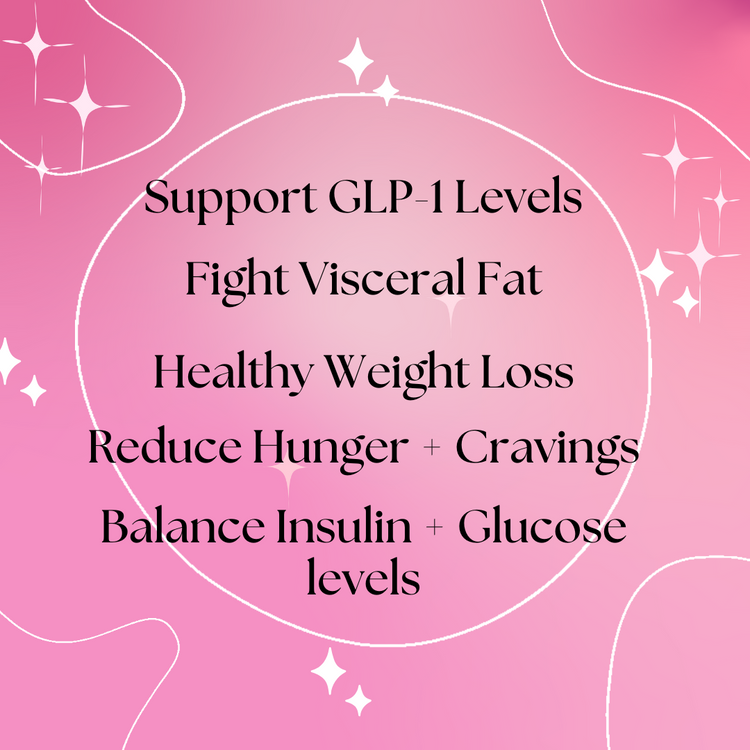Postpartum weight loss is much more complicated than just losing the baby weight. So many new moms find themselves surprised by how slowly the extra weight dissapears, and many are surprised to find themslves carrying the extra pounds for much longer than expected. Sure, breastfeeding does burn extra calories, and for some mothers this is enough, but for many others, the hormonal fluctuations, change of lifestyle, metabolism and diet changes cause the weight to just stick around. There is no need to be completely discouraged though! With the right diet, nutrients and supplements, you can support your body through lactation (even increase your milk supply!), and lose the weight. And, keep in mind, you did lose a significant amount of weight at birth, so you are on your way.
How much weight is lost at birth?
Typically, at birth a mother loses weight in water, the placenta and the baby. If your baby weighs 8lbs, then you've already lost 8lbs at birth. Typically, about 13 lbs total is lost at birth. This includes the baby, the placenta and water weight. It is also normal to lose water weight days and weeks after birth. Night sweats are common for postpartum mamas that help flush the extra water out.
How much weight should I lose in the first 6 weeks?
As mentioned, at birth you've lost about 13lbs. More water weight is lost in the following days and weeks. Some mothers lose as much as 20lbs in about 6 weeks postpartum. Depending on how much you gained during pregnancy, this may leave about 10-15 pounds left to lose with some hard work. If you have more to lose, don't worry. If you can lose 5lbs, you can lose 10lbs as long as you are consistent with the tips and guidelines we give you. Getting to a healthy weight is much more than just the way you look. A healthy weight is important to keep away medical conditions, increase energy levels, and establish long term healthy habits.
What if I am gaining weight while postpartum?
If you are gaining weight while postpartum, there are a number of factors at play. If you are breastfeeding you are absolutely burning extra calories, but it may not be as much as you think. The hunger from late nights, breastfeeding and exhaustion could be causing you to eat hundreds of calories more than you are actually burning while breastfeeding. In addition, during the first 6 weeks postpartum, there isn't much physical activity. Slowing down also means burning less calories daily. But, you can safely start dieting while postpartum, and still nourish your body to heal properly and produce the breast milk your baby needs.
How to lose weight postpartum - the safe and easy way:
What does a safe and healthy diet look like for postpartum weight loss?
Dieting while breastfeeding can be tricky if you are worried about milk supply. The key is to ensure your body gets all the nutrients it needs to sustain lactation. There are some great healthy foods that need ot be the foundation of your diet to get back to your pre-pregnancy weight.
Postpartum weight loss foods that protect milk supply:
Healthy eating is the secret sauce to losing weight while breastfeeding. Calories do matter, but nutrients matter even more. Here are some very important, nutrient-dense foods that will help with weight loss as a nursing mama.
- Sweet potatoes
- Apples
- Spinach
- Quinoa
- Beans
- Eggs
- Berries
- Broccoli
- Oatmeal
- Milk Dust (protein powder)
- Whole grains like sprouted wheat bread
- Healthy fats like avocados, fish and nuts
Eating healthy food is the foundation of safe weight loss during the postpartum period. But, eating just the right foods isn't always enough for weight management. Because milk production is important, hormones are fluctuating and metabolism is suffering, supplements are key to help weight loss efforts. For example, a milk supply boosting supplement like Milk Dust is extremely helpful. It offers amazing superfoods and ingredients that have been used for centuries to support lactation, as well as hand-picked nutrients to support lactation and postpartum healing. Supplements like Milk Dust aren't just something to make weight loss easier. They provide your body with the help it needs.
How to diet to protect milk supply postpartum:
Supplements are going to be an important aspect to protecting milk supply while dieting postpartum. When breastfeeding, many mamas are concerned that a "diet" will cause milk supply to drop. In reality, calorie consumption doesn't affect milk supply unless a breastfeeding mother doesn't have any fat stores. Fat stores are created during pregnancy specifically for this function. Some mothers think their milk supply is dropping, when it actually isn't. Make sure you know the real signs of a dropping milk supply, which is really important for safe weight loss. New mothers can't just eat fewer calories and less junk food to get back to their pre-pregnancy size, but the good news is that we have all the tips to get you feeling your best without sacrificing any nutrition from your baby.
Here are some great tips to keep your milk supply up, while losing weight:
- Use milk-supply boosters like Milk Dust (code: LACTATION for 10% off)
- Eat nutrient-dense foods 80% of the time
- Keep up on feedings with baby
- Wear baby skin to skin as often as possible
- Keep physical activity light to start (walking, lower-impact Pilates)
- Try to get enough sleep
- Don't focus on getting enough calories, but rather enough nutrients
Lactation is one of the biggest road blocks to getting to your pre-baby weight. There is another hidden cause to weight gain, and slow weight loss. This is due to your metabolism strugging. Healthy choices, whole foods and the right calorie intake can all be useless if your metabolism is in need of help.
How to fix your metabolism postpartum:
Luckily, your metabolism isn't permanently damaged from pregnancy and birth. OF course the typical steps will help your metabolism. This includes postpartum exercise, eating more nutrient-dense foods that will balance blood sugar and insulin, and attempting to get more sleep. Here are the best ways to fix your metabolism postpartum.
Increase lean protein consumption:
Protein is the building block for lean muscle mass, and the more lean muscle mass you have, the higher your metabolism. The great thing about increasing your lean protein intake is that you can help keep your body from burning your muscle mass for energy needed. Protien is also an essential nutrient that promotes a healthy milk supply. You can read more in depth on the power of protein for weight loss and milk supply here, but basically science supports a new mother's need for more protein. Protein sources need to be lean when it comes to weight loss. Milk Dust Protein is specifically formulated to offer protein as well as a patent-pending lactation blend that increases milk supply. This formula is unique to any other formulas on the market, and uses the power of nutrition as the building blocks for a healthy milk supply.
Great protein sources for increasing metabolism while breastfeeding:
- Milk Dust Lactation Protein
- Lean chicken breasts
- Lean ground turkey
- Tuna
- Lean ground beef (97% fat free)
- Eggs (+ egg whites)
Milk Dust is the top-rated protein powder for nursing mothers, and we have a great, free smoothie recipe book for all the delicious and amazing lactation smoothies that will help with weight loss and boost your metabolism.
Milk Dust Metabolism:
Milk Dust Metoblism is a new supplement to the Milk Dust family. It focuses on safely supporting your metbolism with simple, clean ingredients. Milk Dust metabolism uses nutrients specifically important to postpartum and lactation, while also adding some to support metabolism
- Zinc
- Chromium
- Alpha Lipoic Acid (treats and reduces insulin resistance)
- Green Tea Leaf (appetite suppressant/energy - good bye breastfeeding hunger!)
- Berbine HCL which Dr. Child describes as "one of the best supplements you've never heard of." It has positive effects on blood sugar and insulin, as well as extremely beneficial for hormonal pathways, and why it is one of the most important ingredients in Milk Dust Metabolism. The root behind not losing weight postpartum is hormonal imbalance, and Berbine is a key helper in this.
- Resveratrol: High concentrations are found in grapes, and it is extremely powerful antioxidant that reduces the risk of cancer, supports brain function and shown to reduce blood sugar and weight in various studies.
These are the main ingredients in Milk Dust Metabolism which focus on supporting nourishment during the postnatal period, as well as acting as a helping hand for your metabolism and hormones.
Both Milk Dust Lactation Protein Powder and Milk Dust Metabolism offer the nutritional support by targeting the increased nutritional needs during lactation and postpartum. When these are combined together, you have a powerful weight loss plan that is far more effective than many of the weight loss programs or trying a crash diet. When taking both Milk Dust Lactation Protein Powder and Milk Dust Metabolism, you still need to follow a well-balanced diet plan. It is really important to also get real food nutrients, drink plenty of water, and start increasing physical activity when you are cleared around six weeks postpartum
Steps to lose weight postpartum safely:
Here are some simple steps you can take NOW, so you can start losing the baby weigth without compromising any of your milk production for your new baby.
- Reduce carbohydrates and sugar intake
- Fill your plate with fruits and veggies
- Use the size of your fist for protein servings
- Drink plenty of water to avoid dehydration
- Focus on protein at every meal
- Add fiber-rich foods at every meal
- Walk 45 minutes a day
Following these simple steps can actually make a big difference. Postpartum weight loss is tricky because there are so many hormonal changes happening in the body that affect how weight is stored and used. Eating a diet that is rich in nutrient-dense foods also really helps with your energy level, which can reduce cravings from exhaustion too. The issue for many women is that they don't stay consistent. Consistency is the key in weight for anyone, and the same goes for weight loss while breastfeeding.
As you navigate through your postpartum weight loss journey, a meal plan can be very helpful to getting started. We have a free one, amonth many other free clean-eating challenges, smoothie challenges and recipes books. The most important thing is that you take each day one at a time. There will be nights that go into days, and it will be hard to know when you last ate. But, if you have a meal plan established, and recipes ready to go, it will make your goals easier to achieve amongst the chaos of taking care of a newborn.










